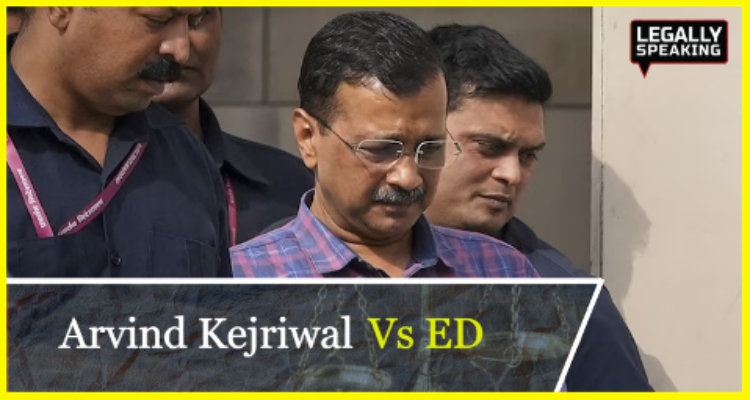
The Delhi High Court scheduled Chief Minister Arvind Kejriwal’s petition challenging the summonses issued to him by the Enforcement Directorate (ED) in connection with its probe into an excise policy-linked money laundering case for hearing on May 15.
The Bench
A bench of Justice Suresh Kumar Kait and Justice Manoj Jain granted time to the AAP leader, who was arrested by the agency on March 21 following the high court’s refusal to grant him interim protection from coercive action, to file a rejoinder to the reply submitted by the ED.
The counsel for the ED argued that the petition has become infructuous due to Kejriwal’s arrest in the money laundering case.
“The affidavit addresses preliminary issues on how the matter is now infructuous,” he said.
The agency’s lawyer informed the court that Kejriwal had challenged the arrest in a separate petition, which was dismissed by the high court, and his appeal is currently pending in the Supreme Court. The bench then inquired about the remaining aspects of the matter.
Senior counsel representing Kejriwal stated that he would file a rejoinder to the ED’s stand, emphasizing that the initial action taken by the anti-money laundering agency was not in accordance with the law (PMLA).
“Senior counsel for the petitioner seeks time to file a rejoinder. Let the needful be done in two weeks,” the court stated. Kejriwal had approached the high court after receiving the ninth summons from the ED, asking him to appear before it on March 21.
On March 20, the high court bench had instructed the ED to file its reply regarding the maintainability of the petition.
The next day, it directed the ED to respond to Kejriwal’s plea seeking protection from arrest, stating that it was not inclined to grant him interim relief at that stage.
The Arrest
Kejriwal was arrested by the ED later that evening and is presently detained in Tihar jail. The federal probe agency alleges that other accused in the case were in contact with Kejriwal to formulate the now-abolished excise policy, resulting in undue benefits and kickbacks to the Aam Aadmi Party (AAP).In his petition, Kejriwal has also challenged the constitutional validity of certain provisions of the Prevention of Money Laundering Act (PMLA) concerning arrest, interrogation, and bail. He raised several issues, including whether a political party falls under the anti-money laundering law, alleging that the “arbitrary procedure” under PMLA was being exploited to tilt the electoral process in favor of the ruling party at the Centre.
Describing the petitioner as a “vocal critic” of the ruling party and a partner of the opposition INDIA bloc, the plea claimed that the ED, being under the control of the Union government, has been “weaponized.”




